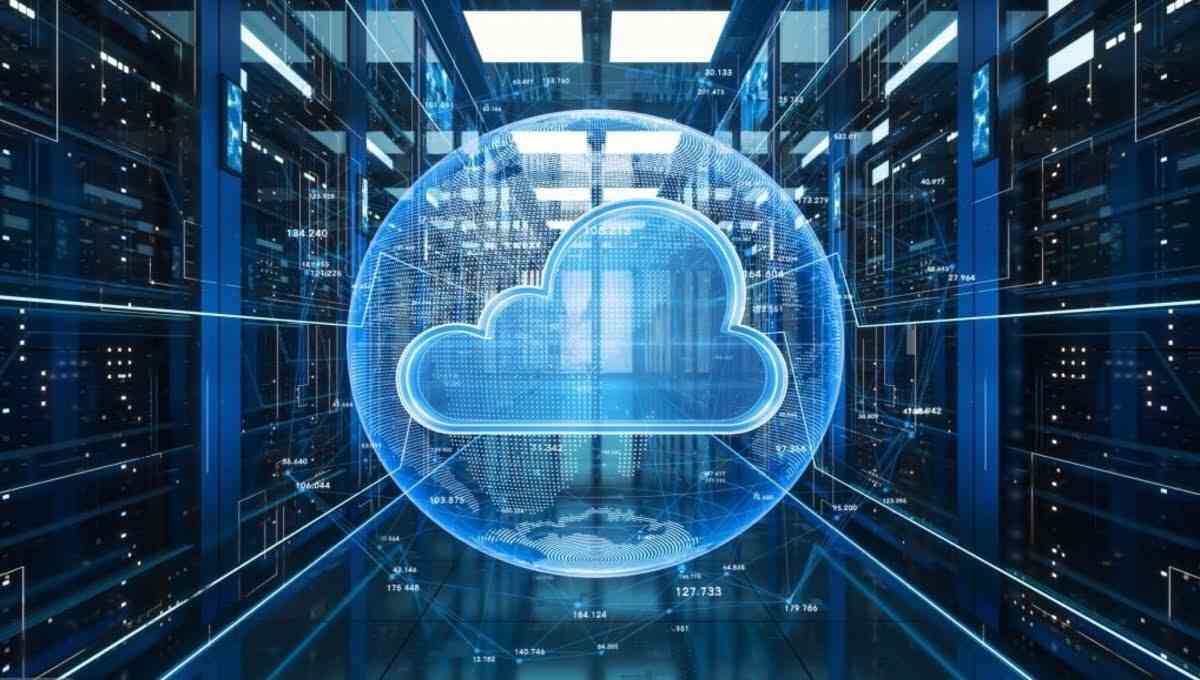CLOUD COMPUTING
What Will Replace Cloud Computing?

In a world where technology is evolving at an unprecedented pace, the future of cloud computing seems uncertain. The cloud, once hailed as a revolutionary paradigm shift in data management, is now facing its own inevitable evolution. As we stand on the cusp of this transformation, it’s crucial to delve into the question: What will replace cloud computing? This article explores the emerging trends and innovations that are poised to reshape the digital landscape beyond the cloud.
The Dawn of Quantum Data Storage
Imagine a data storage system that harnesses the power of quantum mechanics to store and process information. Quantum data storage is on the horizon, promising unparalleled data security and processing speeds. Unlike traditional cloud servers, which rely on bits, quantum storage uses qubits. These quantum bits can exist in multiple states simultaneously, revolutionizing data processing and encryption.
Edge Computing : Where Cloud Meets Reality
The shortcomings of latency and bandwidth limitations in cloud computing have paved the way for edge computing. This decentralized approach brings computation closer to the data source, reducing lag and enabling real-time processing. As the Internet of Things (IoT) expands, edge computing will play a pivotal role in managing the massive influx of data generated by interconnected devices.
Embracing the Fog: Fog Computing Explained
Fog computing takes the decentralization concept even further. It involves a network of decentralized computing devices, including edge devices and sensors, working collaboratively to process data. While cloud computing relies on centralized data centers, fog computing distributes tasks across various devices, ensuring efficient data processing and reducing the load on a single server.
The Resurgence of Peer-to-Peer Networks
Remember the days of Napster and peer-to-peer (P2P) file sharing? The idea of harnessing collective computing power for data distribution is making a comeback. P2P networks are evolving beyond file sharing to encompass decentralized processing, creating a robust and scalable infrastructure that could potentially replace traditional cloud servers.
Biology Meets Technology: DNA Data Storage
Believe it or not, the future of data storage might be encoded in DNA molecules. DNA data storage leverages the incredible density and stability of DNA molecules to store vast amounts of data. While it’s still in its infancy, this technology holds the promise of ultra-compact and durable data storage solutions that could surpass the limitations of cloud-based systems.
Enter the Metaverse: VR and AR as Cloud Alternatives
Virtual reality (VR) and augmented reality (AR) are no longer just gaming novelties; they’re shaping up as viable alternatives to cloud computing. The metaverse—a collective virtual shared space—requires immense computational power. VR and AR devices could potentially take on some of the processing load, distributing the demands of the metaverse away from traditional cloud infrastructures.
Unleashing the Power of AI Chips
AI and machine learning have become integral to modern technology. As AI algorithms grow more complex, the need for specialized hardware accelerators increases. AI chips are purpose-built for AI tasks, delivering lightning-fast processing. These chips could lead to a shift away from relying heavily on cloud-based AI services.
Blockchain: Beyond Cryptocurrency
Blockchain, the technology underpinning cryptocurrencies, has transformative potential beyond financial transactions. Its decentralized and secure nature makes it a contender for data storage and processing. Blockchain-based platforms could provide a trustworthy and efficient alternative to conventional cloud systems.
Cloud-Edge-Fog-P2P: Hybridized Future
In the quest to replace cloud computing, a hybridized approach might emerge. Cloud-edge-fog-P2P hybrid models combine the strengths of various technologies to create a seamless and resilient ecosystem. This model would optimize data processing, storage, and distribution, ensuring efficiency and reliability.
In Conclusion
The future of technology holds exciting and transformative possibilities. As cloud computing takes a step back, innovative technologies like quantum data storage, edge computing, and decentralized networks are stepping up to the plate. While it’s unclear which technology will ultimately replace cloud computing, the digital landscape is sure to be shaped by a combination of these advancements. Embracing change and staying informed will be key as we venture into this uncharted territory.
FAQs
Will cloud computing disappear overnight?
No, the transition away from cloud computing will likely be gradual. It will be driven by advancements in alternative technologies and evolving business needs.
What are the challenges of quantum data storage?
While promising, quantum data storage faces challenges such as qubit stability and the need for extremely low temperatures for optimal operation.
How does fog computing enhance data privacy?
Fog computing processes data closer to its source, minimizing the need for centralized data centers and reducing the risk of data breaches during transmission.
Are there any ethical concerns with DNA data storage?
Ethical considerations, such as the potential misuse of stored genetic information, need to be addressed as DNA data storage evolves.
Can VR and AR really replace cloud computing?
While not a direct replacement, VR and AR can offload some processing tasks, making them valuable components of a distributed processing ecosystem.
Will AI chips make cloud-based AI obsolete?
AI chips will complement cloud-based AI services, offering an efficient way to process AI tasks locally and reducing latency.

 FUNDAMENTAL2 months ago
FUNDAMENTAL2 months agoHow Cloud Computing Improving Customer Service Processes

 FUNDAMENTAL7 months ago
FUNDAMENTAL7 months agoWhat is cloud computing? A Comprehensive Guide

 FUNDAMENTAL4 months ago
FUNDAMENTAL4 months agoHow can Cloud Technology Help Small Businesses ?

 FUNDAMENTAL7 months ago
FUNDAMENTAL7 months agoEvolution of Cloud Computing : A Well-Explained

 CLOUD COMPUTING2 months ago
CLOUD COMPUTING2 months agoWhat Is VlAN and VSAN In Cloud Computing?

 FUNDAMENTAL2 months ago
FUNDAMENTAL2 months agoIaaS PaaS and SaaS in cloud computing

 FUNDAMENTAL2 months ago
FUNDAMENTAL2 months agoWhich is a fundamental attribute of cloud computing?

 CLOUD COMPUTING2 months ago
CLOUD COMPUTING2 months agoHow to Make Your Own Cloud Storage : A Step-by-Step Guide









